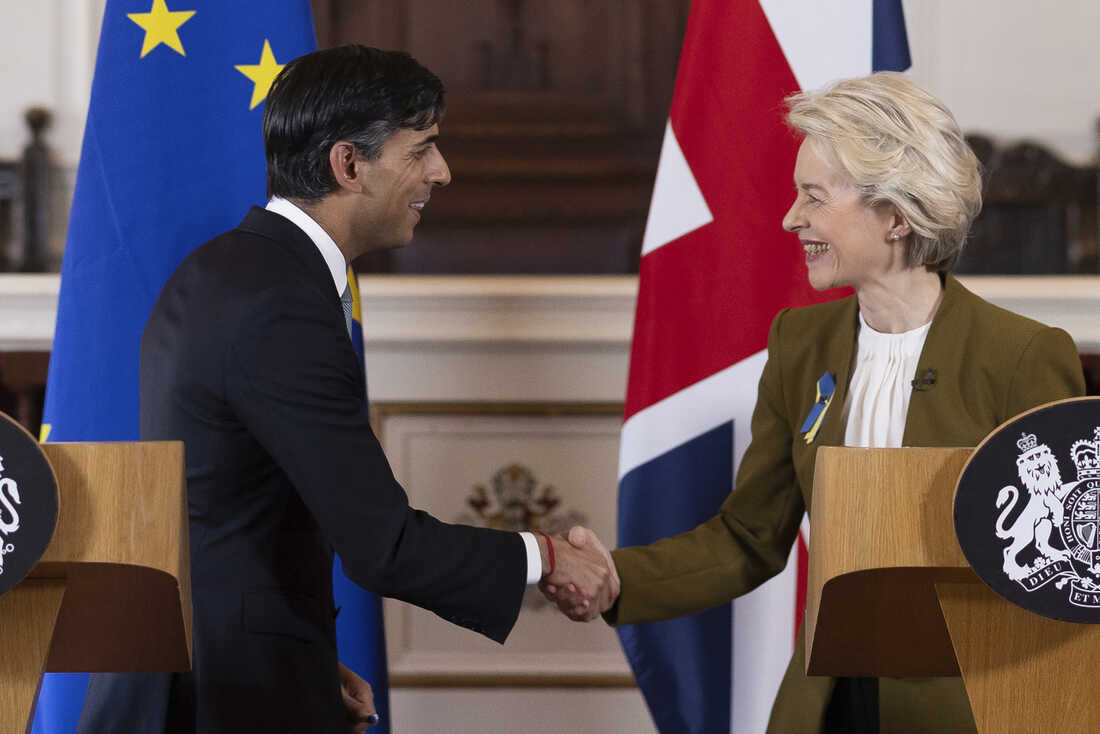Comments
- No comments found

The UK and EU have officially adopted a new Brexit deal for Northern Ireland called the Windsor Framework, which is aimed at making trade between Northern Ireland and the rest of the UK easier.
The deal gives the Stormont assembly more say over EU rules and has been welcomed by most Northern Ireland parties, but the Democratic Unionist Party (DUP) voted against a key aspect of the deal and is still refusing to re-enter power-sharing. The UK government is relieved that the deal passed through the House of Commons with a smaller rebellion than expected, but there are still negotiations ahead, including discussions on the UK's access to the EU's Horizon research scheme.
The DUP's refusal to back the Windsor Framework and go back into power-sharing remains a sticking point. The deal aims to significantly reduce the number of checks on goods arriving in Northern Ireland from Great Britain and includes a Stormont Brake mechanism that would allow the Northern Ireland Assembly to object to new EU rules.
While the new deal marks a new chapter in UK-EU relations, the DUP's next move is uncertain. The UK government is keen to play the long game and move forward with talks in other areas of cooperation.
The UK's departure from the EU after decades of membership has fundamentally altered the relationship between Europe and the UK. Despite this, it remains vital for both sides to maintain strong cooperation in the post-Brexit era.
One of the most significant reasons for continued cooperation is economic ties. The EU and UK share a strong economic relationship that benefits both sides. A failure to maintain these ties could lead to negative economic impacts for businesses and economies on both sides of the English Channel. Another reason is security. The UK and EU have a shared interest in ensuring regional and global security. Both sides face similar security challenges, including terrorism and organized crime. Continued cooperation on security matters is essential to ensuring the safety of citizens in both the UK and the EU. The environment is another critical area where cooperation is necessary. Climate change is a global problem that requires a coordinated effort to combat. The UK and EU have both committed to ambitious climate targets, and continued collaboration is necessary to achieve these goals.
Britain and the EU have a shared history and culture that cannot be ignored. Despite their differences, the two sides share a rich cultural heritage that is worth preserving. Maintaining close ties in areas such as education and the arts is vital to ensuring this heritage is protected for future generations.
While the UK's departure from the EU has changed the relationship between Europe and the UK, it remains crucial for both sides to maintain strong cooperation in economic, security, environmental, and cultural areas.
Leave your comments
Post comment as a guest